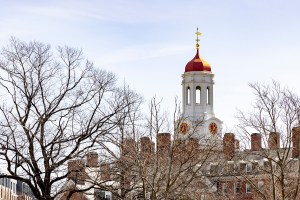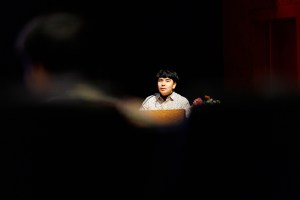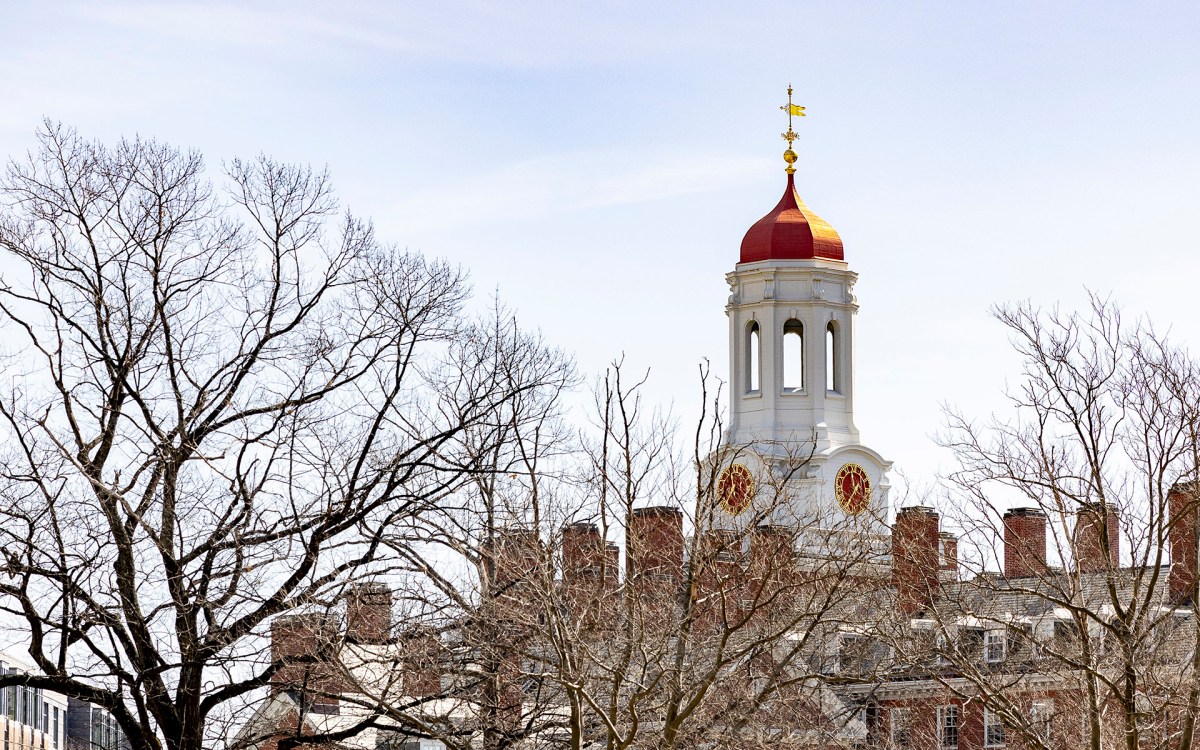Harvard hosts Science Across the City
Kids and grad students experiment together
In a sun-drenched conference room on the second floor of Maxwell Dworkin Hall, about 40 fourth- and fifth-graders from the Elihu Greenwood and Louis Agassiz schools in Boston gathered for some hands-on experiments with Harvard graduate students.The April 30 Harvard event was part of the second annual Step UP Science Across the City Day.
Kathryn Hollar, director of educational programs at Harvard’s School of Engineering and Applied Sciences (SEAS), organized the day’s events in collaboration with the University’s Harvard Achievement Support Initiative (HASI) team.
“Working with these children reminds us that we are all scientists and engineers from an early age,” said Hollar. “Events like Science Across the City give us the opportunity to nurture that curiosity and creativity, and to help these children see the value of science and engineering in our daily lives, and hopefully give them the desire and confidence to pursue [related] careers.”
The day began with a photo-laden, kid-friendly presentation by Hollar on how bioengineers work to improve the lives of people who suffer injury or disease. The children then received a kit and a challenge: Design a prosthetic finger. They went to work using everyday materials such as straws, paper clips, and rubber bands to demonstrate their budding skills as bioengineers. Some of the students were surprised to find that they successfully created a “bionic finger,” one that resembled a real, moving appendage.
After a picnic lunch of pizza, the group toured Harvard’s Laboratory for Integrated Science and Engineering (LISE). Through the protective orange glass, they observed researchers, outfitted in real “bunny suits” and working with powerful microscopes.
Kasaundria Wallace, 10, from Elihu Greenwood School in Hyde Park, commented on her view into the world of the laboratory, “You could see before you go to high school how people use technology.”
Following their tour of LISE, the group reassembled to participate in a discussion with graduate students studying and applying the groundbreaking technology of black silicon in Eric’s Mazur’s lab. Mazur is Harvard’s Balkanski Professor of Physics and Applied Physics. After learning about a variety of clean energy sources, children had an opportunity to create an energy-storing machine of their own. They gathered in groups to create windmills out of orange juice boxes, construction paper, and Popsicle sticks. Then they tested their designs using a fan to propel the blades and lift a cup filled with pennies. Some groups cheered their success while others went back to the drawing board with a new hypothesis and ideas for re-engineering their windmill blades.
“I didn’t know it was going to be this fun,” said Samantha Mendoza, age 9, from Elihu Greenwood upon seeing her team’s windmill in action.
Step UP is a new and unique school-university partnership to address the growing achievement gap in public schools. Five area universities work with 10 Boston-area public schools. Convened by Boston Mayor Thomas M. Menino, the collaboration applies the universities’ expertise, intellectual resources, and experienced public education outreach to deliver targeted services to these schools.




